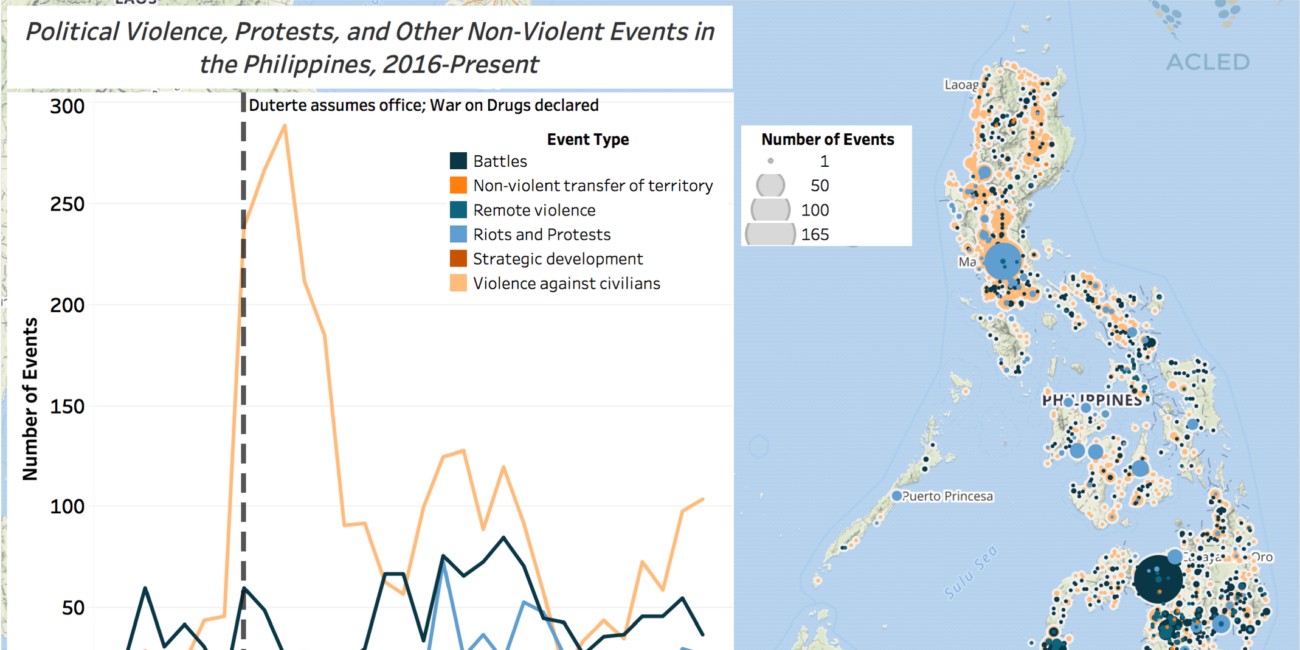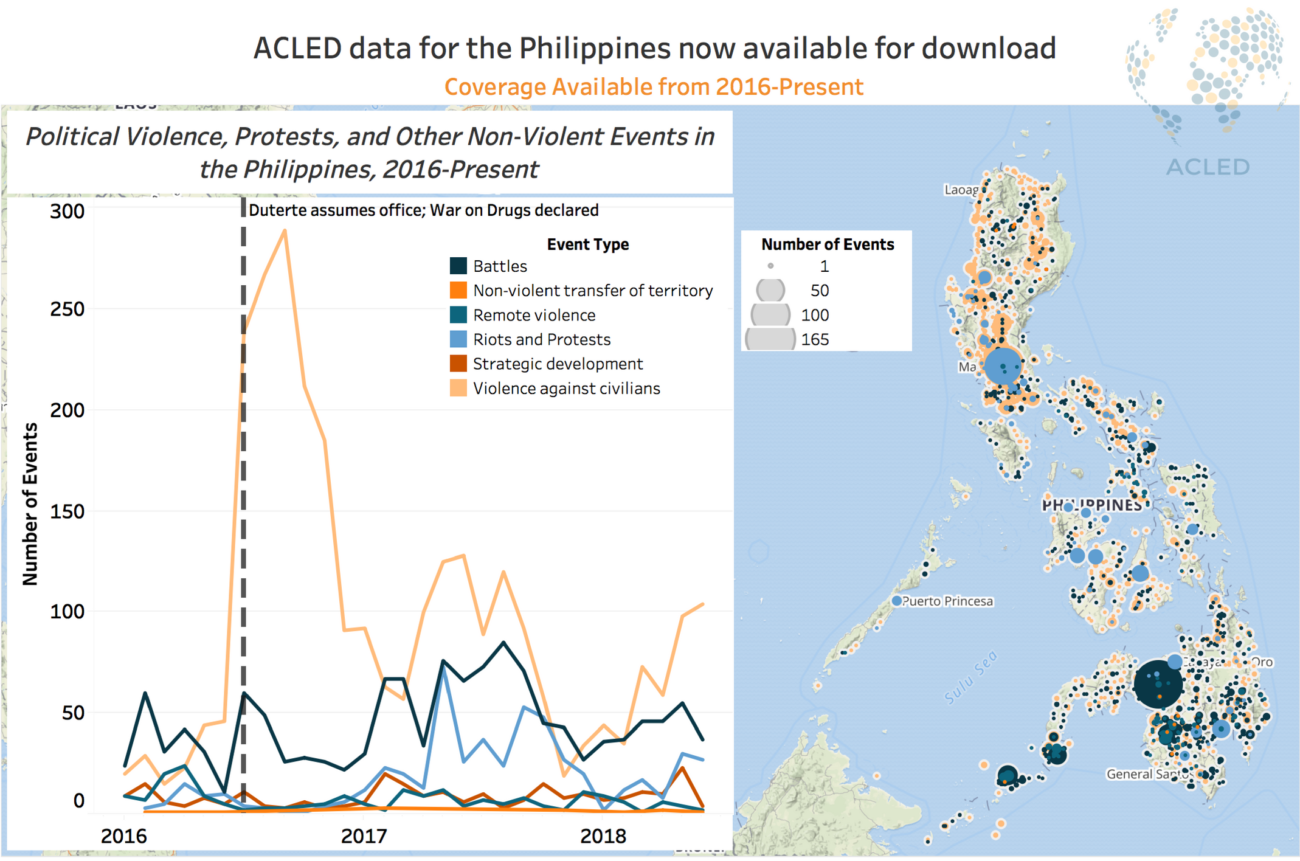Recorded political violence, protests, and other non-violent events drastically increased in the Philippines after President Duterte assumed office (June 30, 2016) and declared a ‘War on Drugs’ (July 1, 2016). In particular, Duterte’s drug war has resulted in violence against civilians increasing from around 50 recorded events to nearly 300 from June to August 2016, as government officials and anti-drug ‘vigilantes’ targeted suspected drug users nationwide. The drug war, and its corresponding attacks and arrests, have continued to the present: May 2018 had the highest recorded level of violence against civilians of any month in 2018, much of which was related to Duterte’s war on drugs.
Meanwhile, tension erupted between the Philippine government and multiple armed groups — including the Bangsomoro Islamic Freedom Fighters (BIFF) and the Maute group — in the autonomous region of Muslim Mindanao in 2017. This resulted in a heightened number of recorded battles between armed non-state actors and the military throughout the latter half of 2017. While these levels dropped in the first half of 2018, there were still over a dozen recorded battles between military forces and armed non-state actors in Mindanao in May 2018.
Find an explanation of ACLED’s methodology for monitoring drug violence in the Philippines here.
AnalysisAsiaCivilians At RiskConflict MonitoringPressRemote ViolenceRioting And ProtestsViolence Against Civilians







